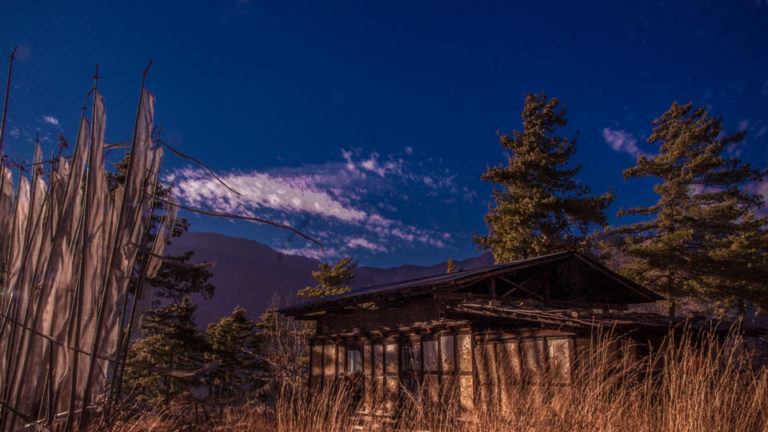Night-hunting in Bhutan
PUBLISHED JANUARY 19, 2022 • 3 MIN READ

Tshering Dorji, 30, comes from a small village in Mongar. He recollects sleeping in a barn with his elder brothers and their friends. They didn’t need blankets. All the boys from the neighbourhood would cover themselves with loose hay bales. As the night progressed, the older boys would slip away leaving behind the deeply slumbering younger ones until the wee hours.
It was only in his teens that Tshering would learn what the older boys were up to. They were slipping away from the barn ‘in search of young [girls]’ (nachung tshewa). By that time, he could feel the stirrings of urge to slip away from the barn to visit a neighbour girl whom he eyed.
And soon, the whole village came to know who Tshering was visiting at night. And soon, his parents and the girl’s parents started discussing their affair as a precursor to a happy marriage. That’s how Tshering’s elder brothers got married.
This tradition of nightly rendezvous is known among the English-using Bhutanese today as night-hunting. In many parts of eastern Bhutan, it is a courtship tradition, a rural version of urban dating. In hard-working, farming communities where time-consuming dating is not a luxury, young couples meet at night. They may or may not have a quick chat about the boy’s coming and how the girl would facilitate the boy’s entry to her house.
Tshering’s elders would tell numerous stories about the adventure and misadventure of night-hunting. Not all boys would find an easy entry to girls’ house. Some fathers, especially those of beautiful girls, were notoriously sleepless or irritable because all boys from the village would try to visit their daughters. They would spring out of their blankets at the slightest rattling of the window and force a boy about to enter through it to jump off into the dark, sometimes into a cluster of stinging nettles.

That’s what night courtship took. It wasn’t easy. It took sleepless nights, twisted ankles, fractured shins, long walks to gain a girl. It’s an act of gallantry for young men. Some of them would walk for hours, across difficult terrain, to another village to meet their girls. Nothing – not even dreaded wild animals and evil spirits – held them back. Their act spoke more of gallantry than romance.
The traditional nightly courtship is gradually fading today. Tshering says electricity and improved housing have proven its nemesis. Unlike in the past when bringing pinewood shavings to burn would take minutes, giving boys so much security of darkness, today it takes only a fraction of a second leaving the boys no time to flee or hide. And modern houses are built to keep thieves – and non-thieves – out.
As a resident of Thimphu today, Tshering Dorji, carries fond memories of youthful time in his village. He remembers countless nights he walk past a haunted house, a bamboo torch in hand, to meet his girl. He says he hears everybody call it night-hunting although this tradition, as he practised it, carries no connotation of hunting. “Things could have changed,” he says. “But then, tradition itself is slowly dying.”
Share this:
Copyright © Bhutan Travel Guru - All Rights Reserved.
